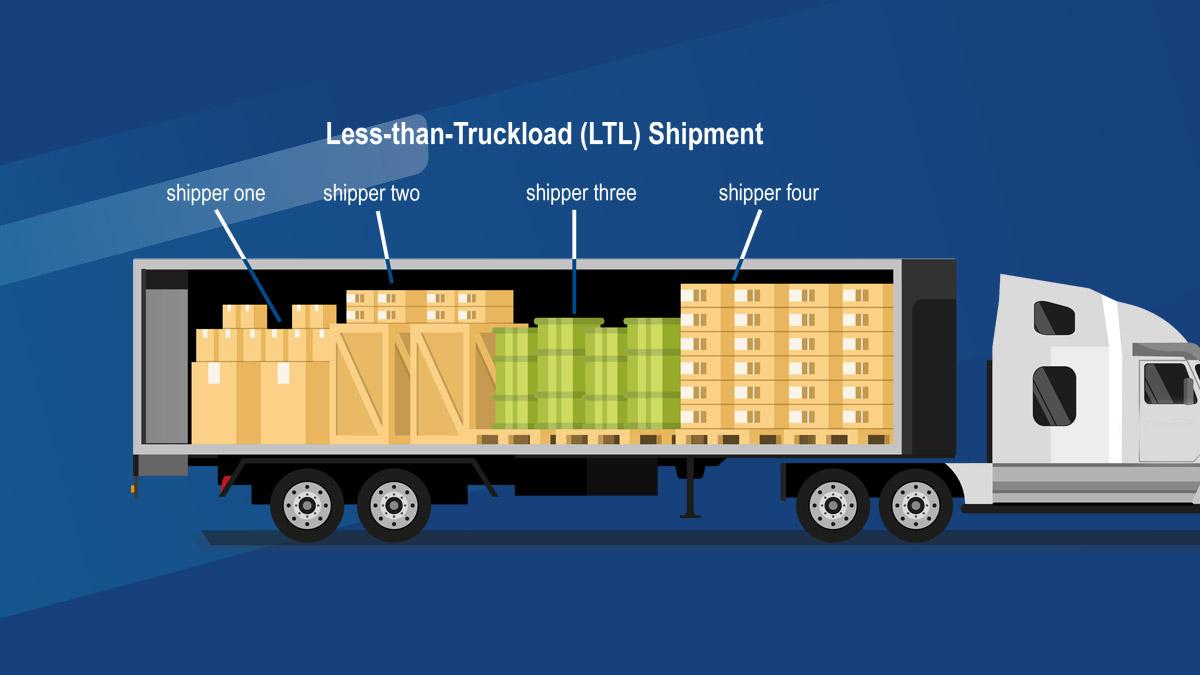In the vast and ever-evolving world of transportation and logistics, one sector that often goes unappreciated is that of Less-Than-Truckload (LTL) carriers. These unsung heroes of the shipping industry play a vital role in moving goods across the country, offering cost-effective solutions for businesses of all sizes. From their complex network of distribution centers to their innovative tracking technology, LTL carriers are the unsung masters of efficiency and reliability. Join us as we delve into the world of LTL carriers and explore the fascinating intricacies of their operations in this article.
Understanding the Role of Less-Than-Truckload (LTL) Carriers in Logistics
Less-Than-Truckload (LTL) carriers play a crucial role in the logistics industry by offering cost-effective transportation solutions for shipments that don’t require a full truckload. These carriers consolidate multiple smaller shipments from different customers into one truck, optimizing space utilization and reducing overall shipping costs. By leveraging their extensive network of terminals and distribution centers, LTL carriers provide reliable and efficient delivery services across various regions.
Utilizing LTL carriers can bring several benefits to businesses, including:
- Cost Savings: LTL shipping allows companies to pay only for the space their shipments occupy, making it a more economical option for smaller loads.
- Increased Flexibility: Businesses can easily adjust their shipping volume based on demand fluctuations without committing to full truckload shipments.
- Enhanced Tracking and Visibility: LTL carriers provide real-time updates on shipment status and location, offering greater transparency throughout the transportation process.

Key Factors to Consider When Choosing an LTL Carrier for Transport Needs
When selecting an LTL carrier for your transport needs, there are several key factors that should be taken into consideration to ensure a smooth and efficient shipping process. One important factor to consider is the carrier’s network coverage. Make sure the carrier has a strong presence in the areas where you need to ship your goods to ensure timely deliveries.
Another crucial factor to consider is the carrier’s track record for on-time deliveries and customer service. Look for carriers with a history of punctual deliveries and responsive customer service teams to help address any issues that may arise during transit. Additionally, consider the carrier’s pricing structure and any additional services they offer, such as expedited shipping or specialized handling for fragile items. By considering these key factors, you can choose the right LTL carrier to meet your transport needs.

Efficient Strategies for Optimizing Shipping Processes with LTL Carriers
When it comes to optimizing shipping processes with LTL carriers, there are several efficient strategies that businesses can implement to streamline their operations and reduce costs. One key strategy is to utilize freight consolidation, where multiple smaller shipments are combined into a single larger shipment. This not only helps to reduce overall shipping costs but also minimizes transit times and improves overall efficiency. By working with LTL carriers that offer consolidation services, businesses can maximize the space on each truck and ensure that their shipments are delivered on time and in good condition.
Another effective strategy for optimizing shipping processes with LTL carriers is to leverage technology and automation. By implementing a transportation management system (TMS) that integrates with LTL carriers’ systems, businesses can more effectively manage their shipments, track deliveries in real-time, and proactively address any issues that may arise. Additionally, using tools such as load boards and online freight marketplaces can help businesses find the best rates and routes for their shipments, further optimizing their shipping processes.

Maximizing Cost Savings and Service Quality Through Effective LTL Carrier Management
When it comes to managing LTL carriers, striking a balance between cost savings and service quality is essential for businesses looking to optimize their logistics operations. By implementing effective carrier management strategies, organizations can streamline their shipping processes, reduce transportation costs, and improve overall service levels.
One key aspect of maximizing cost savings and service quality is establishing strong partnerships with reliable LTL carriers. By selecting carriers that offer competitive rates, reliable transit times, and high levels of customer service, businesses can ensure that their shipments are handled efficiently and delivered on time. Additionally, leveraging technology solutions such as transportation management systems (TMS) can help organizations track shipments in real-time, optimize carrier selection, and monitor performance metrics to continuously improve their logistics operations.
In Summary
In conclusion, Less-Than-Truckload (LTL) carriers play a crucial role in the transportation and shipping industry. Their ability to efficiently consolidate and distribute small shipments has made them a popular choice for businesses looking to save time and money. By understanding the unique challenges and benefits of working with LTL carriers, companies can optimize their logistics operations and ensure their goods reach their destination in a timely and cost-effective manner. Whether you’re a small business looking to ship products across the country or a large corporation seeking to streamline your supply chain, partnering with an LTL carrier can be a strategic decision that pays off in the long run. With their expertise and specialized services, LTL carriers offer a valuable solution for companies of all sizes looking to navigate the complexities of modern shipping and logistics.
